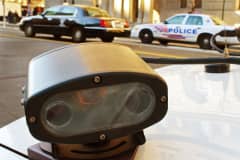License plate recognition technology for law enforcement and embraced by the automotive industry for the withdrawal is open concerns that this data could be misused to wider use by a Florida company that the journeys of millions of private vehicles can - track add to its customers privacy advocates.
TLO, one investigative technology company in Boca Raton, Florida, late June, started its private industry customers say that it put together taps the search service offered in a database of more than 1 billion records from automatic number plate reader.
A report found earlier this week by the ACLU, that U.S. law enforcement that agencies pulled together multitudes of data with license plate readers, creating massive databases, where more than 99 percent of the entries represent innocent people.
But private sector has the technology to work, used especially for the recovery of vehicles from deadbeat borrowers. The new TLO service shows that private use is for other purposes LPR data.
It is unclear who leads opens the database, the TLO, but the two leading companies in the field say that every month their databases collect tens of millions of geo-located information from thousands of license plate readers, security fitted on tow trucks, Mall vehicles, police vehicles, the entrances to save parking or toll stations along the roads and highways.
The data may contain the position of the vehicle, the date and time that it was discovered and a picture. Sometimes, drivers and passengers in the pictures appear.
"The prospect of a private company, making scary such data for all comers public is," said Catherine Crump, a lawyer with the ACLU speech, privacy and technology project. "This kind of information is especially stalker like to get the finger."
Who wrote the ACLU report Crump, but she said not TLOs service had concerns about privacy concerns with other applications, deliberately, as companies keep track of where their employees go to work, politicians, the Boy Scout, rivals or people who keep tabs on babysitter travel.
But on the license plate databases accumulation involved say such fears are unfounded - and that data, via Facebook, Twitter or a person are far more mobile.
"they can find out who you today", Scott A. said Jackson, founder and CEO of Illinois-based MVTRAC, who controls one of the two large private LPR databases in the United States "find out for us, it should bring this information us billions and billions of vehicle number plates to this point. We are at least 10 years away."
Jackson also said that you go through strict checks and vetting of computer security and personnel companies that use MVTRACs camera systems and type in the database. He said who improperly used could violate three federal laws MVTRACs database.
He said the impetus for companies as well to show is that you to use data properly.
"There is no illegality for me enter data on a license plate." But is due to an exponential, the society has a reasonable expectation that companies will be treated responsibly,"said Jackson. "This data I would not give to someone I don't know - it could be a stalker."
As well said Chris Metaxas, Chief Executive Officer of Texas-based digital recognition network or DRN, which holds the other large private LPR database, is subject to strict rules about how such information is collected and used. He said that the ACLU concerns how long is LPR data the point held by law enforcement Miss.
"The question is not really about the retention of data. The real problem is '' surrounding privacy and security, said Metaxas. one of the access control and effective strategies
Metaxas said his company adheres to tried and tested in accordance with the Federal driver privacy laws for access control, encryption, and security of their data. DRN data contains no private information about individuals, he said.
He said "We no identifiable information for owners of these license plates retain".







0 коммент.:
Post a Comment